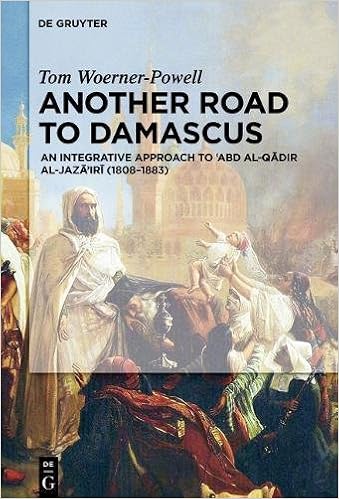The British Association for Islamic Studies (BRAIS) and De Gruyter are delighted to announce the outcome of the first (2016) round of the BRAIS – De Gruyter Prize in the Study of Islam and the Muslim World:
Winner:
DR TOM WOERNER-POWELL
Winning Submission:
ANOTHER ROAD TO DAMASCUS:
AN INTEGRATIVE APPROACH TO ‘ABD AL-QĀDIR AL-JAZĀ’IRĪ
(University of Oxford)

This has now been published and may be accessed here
The prize award ceremony was held on 11 April 2016 at the Third Annual Conference of BRAIS, which took place at Senate House, University of London, and was attended by the winner, Prof. Robert Gleave, Prof. Judith Pfeiffer and Dr Ayman Shihadeh on behalf of the BRAIS Prize Committee, and Dr Alissa Jones-Nelson and Dr Sophie Wagenhofer representing De Gruyter. The winner gave a presentation based on his thesis.

From the Left: Prof. Judith Pfeiffer, Dr Alissa Jones-Nelson, Dr Tom Woerner-Powell, Dr Ayman Shihadeh
The following three other entrants were shortlisted for the prize, and their submissions were deemed to be of high scholarly quality and interest:
- Majied Robinson, Prosopographical Approaches to the Nasab Tradition: A Study of Concubinage and Marriage in the Tribe of Muhammad (University of Edinburgh)
- Asmaa Soliman, Muslims in Europe: the Public Engagement of Young German Muslims (UCL)
- Paul Gledhill, The Development of Systematic Thought in Early Mālikī Jurisprudence, 8th-9th Centuries A.D. (University of Oxford)
On the Winner:
After an upbringing in Germany, England, and the Republic of Ireland, Dr Tom Woerner-Powell went on to study at the Universities of Durham, Damascus, and Oxford, earning degrees in Arabic and Politics, Modern Middle Eastern Studies, and Oriental Studies. His research interests encompass an interdisciplinary approach to the evolving history of ideas in inter-cultural environments, with particular focus on Sufism, secularism, and humanitarian discourses in political context. Since completing his doctorate at Oxford, Tom has divided his time between stints of Undergraduate teaching at the Universities of Lancaster (Politics, Philosophy, and Religion) and Edinburgh (Social Anthropology) and working with Lancashire's homeless through several national charities. He has spoken at academic conferences and events in Europe and the Middle East organised by the Red Cross and Red Crescent, the Arab Thought Forum, and the Overseas Development Institute, among others. Tom has published articles as both author and translator in journals including Studia Islamica, Third Text, and the European Journal of Cultural and Political Sociology. He is a past recipient of the Fondation Ousseimi’s Prix de la Tolérance.
The Winning Submission:
This thesis challenges a tendency in European writing on ‘Abd al-Qādir al-Jazā'irī to divide his biography into two distinct and juxtaposed phases, separated by a variety of narratives of conversion: from Francophobia to Francophilia, from Realpolitik to idealism, from militarism to pacifism, from activism to quietism, from Islamic supremacism to religious pluralism, from politics to religion. Drawing on a wealth of primary materials, including archival documents and selections from ‘Abd al-Qādir's own writing, it constructively critiques his reception in recent academic literature while advancing a continuous and contextualised account of his life and ideas. From the philologically-informed and inherently interdisciplinary perspective of Oriental Studies, this thesis demonstrates that the narratives of conversion read into his life by western observers cannot be sustained in light of the evidence. Rather, these can be shown to originate in specific historical, cultural, and methodological tendencies within western (and particularly French) societies and academies. By problematising these interpretive issues, this thesis aims at opening new avenues for understanding ‘Abd al-Qādir, even as it offers its own solutions. These efforts include the relating of his ethico-religious and jurisprudential concerns to his political decision-making, and a resituating of his mystical writings within a definite moral, epistemological, and political context. The result is an account of ‘Abd al- Qādir's life which integrates and inter-relates both the various phases of his life and the broad range of his interests, giving a more lifelike and coherent understanding of the man. Through relating this study to broader methodological and intellectual trends, it is also the hope of this thesis to contribute to more general work on Sufism, political Islam, and east-west relations.
For the current call for submissions, please go to www.brais.ac.uk/prize
